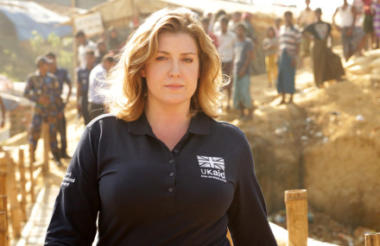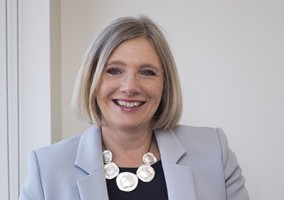Penny Mordaunt, the sectary of state for international development, has said that small charities have better safeguarding procedures than larger ones.
She was giving evidence to the International Development Committee earlier this week and was responding to question about the Department for International Development intended to support smaller charities to meet higher safeguarding standards.
In the wake of the safeguarding scandal earlier this year, she said DfID asked all its aid partners to provide it with details of their policies and procedures and explain how they had handled incidents.
Mordaunt said that “the smaller organisations were actually much better than the larger organisations”.
Peter Taylor, head of the safeguarding unit at DfID, added: “There are some larger organisations that also have very good practices.”
He urged charities to be “up front” about what support they need and said the department would look at things on a “case-by-case basis”.
Taylor added that DfID is working with Bond and also looking at ways it could “buddy up” large and small organisations to encourage peer support.
“It might be that the small ones can teach the large ones something,” he said.
‘Renewed focus on beneficiaries’
Mordaunt said the safeguarding scandal had prompted renewed focus on putting beneficiaries at the heart of everything, and enabling them to raise concerns.
“Ultimately in the Oxfam case that is what went wrong,” she said.
She added that: “In every single thing that we do we have to have the beneficiaries' voice heard.”
Without hearing from beneficiaries “you can’t be certain that what you’re doing is effective,” she said.
“The crisis that happened in the wake of Oxfam has given the sector an opportunity to refocus on those practices and ensure that they are second to none,” she said.
‘Common sense approach’
She said that DfID would take a “common sense” approach to instances where a charity has not reported an incident to local authorities in cases where it would place the victim in more danger – such as where rape victims are criminalised.
“I’m not going to take a dim view of an organisation that takes a course of action that protects a victim,” she said.
But it is a “very different” to “letting someone off the hook because it would damage their fundraising”.
Taylor added that he expects the department to have published clearer guidance by October.
Lack of enthusiasm for a global ombudsman
Mordaunt also said the idea of the creation of a new ombudsman for international aid is “not flying” with other countries.
“One of the reasons why the ombudsman idea isn’t flying with other nations is because they feel it might replicate things,” she said.
Ahead of an international summit in October she hopes to have scoped out ways the international community can “harmonise” aspects of international aid delivery so that it can “deliver some tangible actions and commitments”.
|
Related articles












